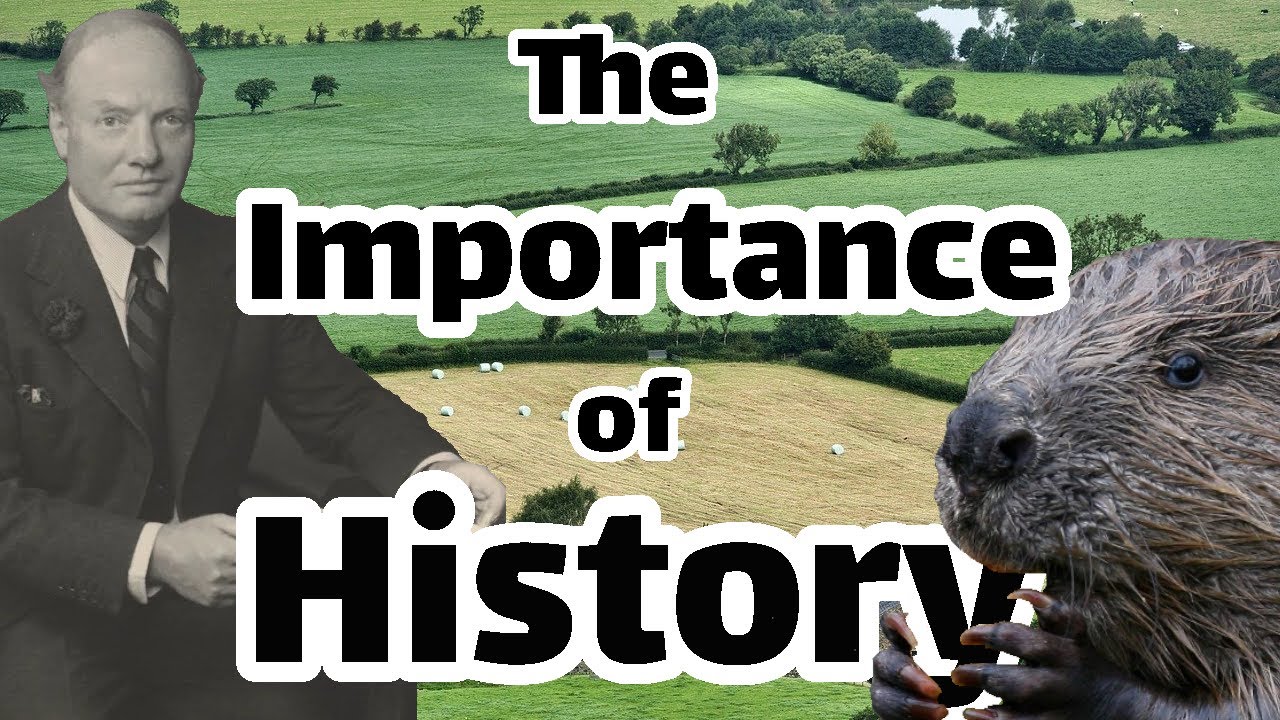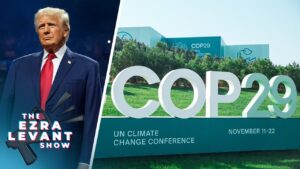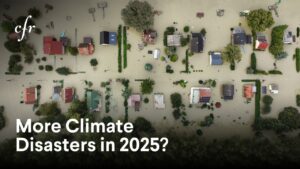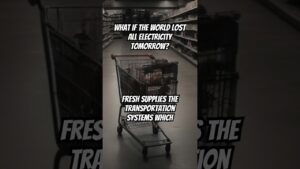
Episode 41 – The Importance on History. A brief look at an article published by myself and Professor John Martin in the Rural History academic journal. This is followed by a discussion of the importance of history in understanding the narratives the define the current debate about environmetnalism and the countryside – and how those narratives shape science on the subject. Different methods of measing the warming impact of methane is used as an example of different sid of the argument trusting different science.
Join the Discord: https://discord.gg/J32PEtnw6u
Support the channel: https://buymeacoffee.com/farmingexplained
Sources:
LoginEKO website-
https://www.logineko.com/sustainable-farming/
Hestia website-
https://www.hestia.earth/ – Login5 and wwf probably an adversarial attitude to agriuclrue
Poore and Nemecek’s 2018 article –
https://josephpoore.com/Poore%20and%20Nemecek%20(2018)%20Reducing%20foods%20environmental%20impacts%20through%20producers%20and%20consumers.pdf
Login5 website –
https://www.login5.org/digital-solutions-for-agricultural-sustainability/
Myles Allen lecture on GWP* –
https://www.youtube.com/watch?v=KWchjFsyPYw&t=479s&ab_channel=BritishCattleBreedersClub
Myles allen profile (hilariously from the Oxford Martin School, they must really get on there)
https://www.oxfordmartin.ox.ac.uk/people/myles-allen
Head of cattle graph:
https://commonslibrary.parliament.uk/research-briefings/sn03339/
Bbc article that quotes nemecek and poore
https://www.bbc.com/future/article/20221214-what-is-the-lowest-carbon-protein
Conservation is bad for wildlife –
https://www.nature.com/articles/d41586-023-01979-x
source







I am sorry, when I have to break it, but I think there is a flaw in that GWP* metric. Methane in the atmosphere, when it gets consumed it turns finally into CO2 and H2O, both also green house gases. H2O can be discounted, as it will quickly partake in the water cycle anyway. But the CO2 that was formed from the methane needs to be carried over into the amount of CO2. Though the reaction of CH4 to CO2 reduces the GHG potential, one cannot act, as if it is gone 100% from the pool of GHGs.
"Clima// chan//e" – in the popular/media dialogue is as scientific as "marxism" was until 50 years ago. Its the use of bits of partial science to label as scientific a complety ideology. Marxism was the big ideology of modernity. "Clima/e chan/e" is the same thing, for post modernity.
Okay, so, as we've noted before, I do favour a degree of re-wilding, but maybe in areas that makes sense? Issue is it it falls into the problem of middleclass townies and their aesthetic of what natural England is/should be. We dont see strong calls to reforest moorlands (quite the opposite their barren nature is protected); why, because the aesthetic is more important.
Instead, its a pursuit to turn very productive agri-land into swamps, marsh and woodland more than the idea of the countryside being an important, productive system.
This coupled with new-wave left wing townies, who make the error of ascribing farmers as being aristocrats and thus an enemy to be conquered (which is ignorance on the part (Ironic as they tend to be the bourgeois under marxist ideas), and ignore the whole needing to eat part.
Its genuinely pseudo environmentalism. At best, its heart in the right place, but PPP and execution, at worst insidious, elitist nonsense.
Even though methane causes 28 times the warming that CO2 does, its concentration in the atmosphere is far lower. On Earth, the concentration of atmospheric methane is 0.00017%. CO2 accounts for roughly 0.04% of the atmosphere. Hence, accounting for the fact that methane causes 28x more warming, the amount of warming caused by CO2 is still 8.4x higher than that of methane. I've read Joseph Poore's paper also, he fails to account for the fact that while dairy and beef cattle produce a lot of methane, a lot of CO2 is also sequestered in their food. You're also quite right to point out that manures are spread on wheat fields, etc, he failed to take account of that also, and the wider vegan movement also fails to account for the various feedback loops that exist within agricultural economies, and the interdependence between systems of crop and livestock farming. Methane concentrations have been rising during the past 200 years, although these increases are probably due to gas leaks caused during the mining of natural gas. I suspect very few of the novel methane emissions come from agriculture.
driving those oversize trailers full of maize 30 miles on the road to make into cattle feed is just bonkers.
Some of the biggest environmental (and ethical) problems of beef production come from the massive hyper-centralized feed lots from the US, Brazil and others. When you make your argument about methane production I think you should talk about how production practices differ in the UK from the likely import sources and how that factors into emissions calcs.
This channel deserves a much bigger audience. Cheers from Canada.
Was thinking the other day that rising carbon levels in the atmosphere are there to help grow more food as carbon in the atmosphere is used by the plants. So as population rises higher carbon levels are there to feed the population
apes, not monkeys, humans are apes
The narrative behind the science. Much appreciated.
Methane is a greenhouse gas that has a more powerful radiative force than Co2. While it dissipates in the atmosphere quicker than co2, while it is in the atmosphere it is like 75x more powerful of a greenhouse gas.
Keep 'em coming – History is too important to be left to the Historians!
Muck spreading – there's a metaphor in there somewhere…
Global cattle populations have multiplied x2.8 in 100 years, whereas global methane emissions has multiplied x4.3 [ourworldindata]
But if we switch to just European data, cattle population growth is negligible x1.04 [ourworldindata]
Ollie I know the channel is UK centred but environmentalism is a global movement and climate change is inherently global.
The UK isn't the big culprit. UK environmentalism would be better served finding which methods and technologies are lacking globally and encouraging their export.
I don't know if this kind of project already exists, I hope so.
Is there anything that you can say on how global agriculture interacts with each other?
The very fact that AI and computer modeling is being relied upon to assess the effect of agriculture on the climate and the dismissal of acquired knowledge and common sense is cause for concern in itself. Remember the computer predictions during the BSE scare? My chief concern is the effect that re-wilding and the subsequent reduction in food production will have on food security given that we are an island nation.
Your comments on the measurement of methane's effect on the climate are both welcome and well-taken, but there are a couple of points you could consider further:
a) The "success story" of effectively net-zero agriculture in the UK is, as you discuss, due to the large reductions in cow populations and associated methane emissions. This would seem to still be an argument in favour of continued reductions in beef and dairy production, which would be needed to maintain that effect into the future.
b) Similarly, whether you look at it as reducing the world's temperature or preventing further temperature rises, either way reducing methane production is good for the climate, and again that suggests that we should keep less cows around.
Overall, we can quibble about what carbon metrics to use but if at the end of the day they all suggest that reducing the number of cows is a good idea, then is it really all that critical?
I have things you should watch to increase your knowledge on "climate change" and Regen ag
CDN channel on youtube, they are an organization based in Canada and are good at finding flaws and bias in climate change research article;
Roots so deep (you can see the devil down there) another youtube channel and a series of 4 hours/episodes of research about AMP grazing comparing neigbors around the US (6 pairs) and the conclusion is mind boggling;
Soil works LLC is a company and youtube channel talking about what soil need and what is missing in todays soil and use multiple tools to determine whats up, Glenn comes from a family who never trusted chemical farming and for good reasons. He doesn't want to see another food label that impedes farmer to farm in their context.
I had the activist mindset thinking we should reduce emission and all that… Then I realised that rural temperature never really changed much in 50 years, and that all the climate change we see comes from cities where all the asphalt and concrete lives and deserts are made. And that farming (agroforestry, silvopasture, …, Less chemical in fields and better land management makes nature works 10x more efficient) is one of the biggest solution we have to make climate change more about less winter in the north and make nature/biodiversity more enduring!!
Keep up the puzzle solving, everyone is bias now and wants to control what can we eat.. I'm always open to hear new argument and views on this subject thank you
I saw a BBC clip recently about a 'Stage 0' river project that was exactly what you described here and I had similar thoughts.
People kept commenting about it being natural and mother nature… it was some JCBs dumping hardcore, which didn't seem very natural to me. Creating an artificial wetland is a vanity project and doesn't actually help the environment much. Flooding 40 acres of fields will give you some hydrological capacitance, but it's actually quite limited and localised.
For the same £2.5m the wetlands cost, you could add rainwater harvesting to over 100,000 households, saving billions of litres being drained from aquifers and waterways, saving billions of litres of highly processed water being flushed away and sprayed on gardens, reduce the strain on the sewage system so less (hopefully none) of it gets 'discharged' and adds 1/2 billion litres of water storage which would have a much greater impact on flooding. All of this would save the existing waterways, it's just less of a glitzy exciting project.
Whenever you see environmental projects, you should always ask yourself, is this actually helping or is this just feeding people's egos and making people feel better about the environment.
I wonder how much of the UK's environmental impact could be removed with more methane harvesting from both farm based digester, but also municipal sewage systems. It won't be making middle class white women moist in their wellies, but one estimate of the methane production potential of the UK put it at fully 50% of current national gas consumption, with no Ukrainians harmed in the production.
4:07 So let's keep farming as much as possible everywhere in world thus leading to more food abundance and increasing world population thus worsening the problem and destroying the whole nature in the world.
Solution is simple. If a country can't feed itself than it can't keep operating like that.
Please see the book "Flawed Figures & Fragile Futures" by Nadaline Webster (Revenue Ink Ltd.). She looks at how the methane models are flawed, and some of the drivers for still using GWP100. The book could do with a good index and a bit of an edit, but is a very important contribution to the debate. She was also on a Groundswell panel discussion https://youtu.be/OjVm5RF6JuU
Interesting, we can't LUMP all farmers into single environmental management plan, there too many factors at play other then carbon, methane emissions. What is needed is long term environmental impact study on every farm. The information might be interesting read by public but for farmers its way of measuring environmental growth. If we look at crops since 90's with drought years i can show with less moisture because better farm machinery, same farming practices i have increased yields, i can show you reduce carbon emissions using less fuel. Running stock is different especially drought vs wetter years, are they stress emitting more carbon?, handling of weeds determines carbon footprint am i spraying more using more carbon?
With carbon use is how do so call make it neutral, given you have best year of crops in drought but emitted more carbon having keep up with livstock ethical standards? I dont think there's simple answer but if surrounding environment is healthy so rare plants are still thriving, native animals by numbers are there that should be the key. One thing is knowing native animals, plant behaviour as you only see big goanna every 4 years just like red belly black snake, so can't take into yearly effects it might be 5, 10 years studies.
The most important thing to remember is that there are a lot of people that hate you and want you dead, and making you feel guilty for eating healthy food is just a ploy to make their task of getting rid of you easier.